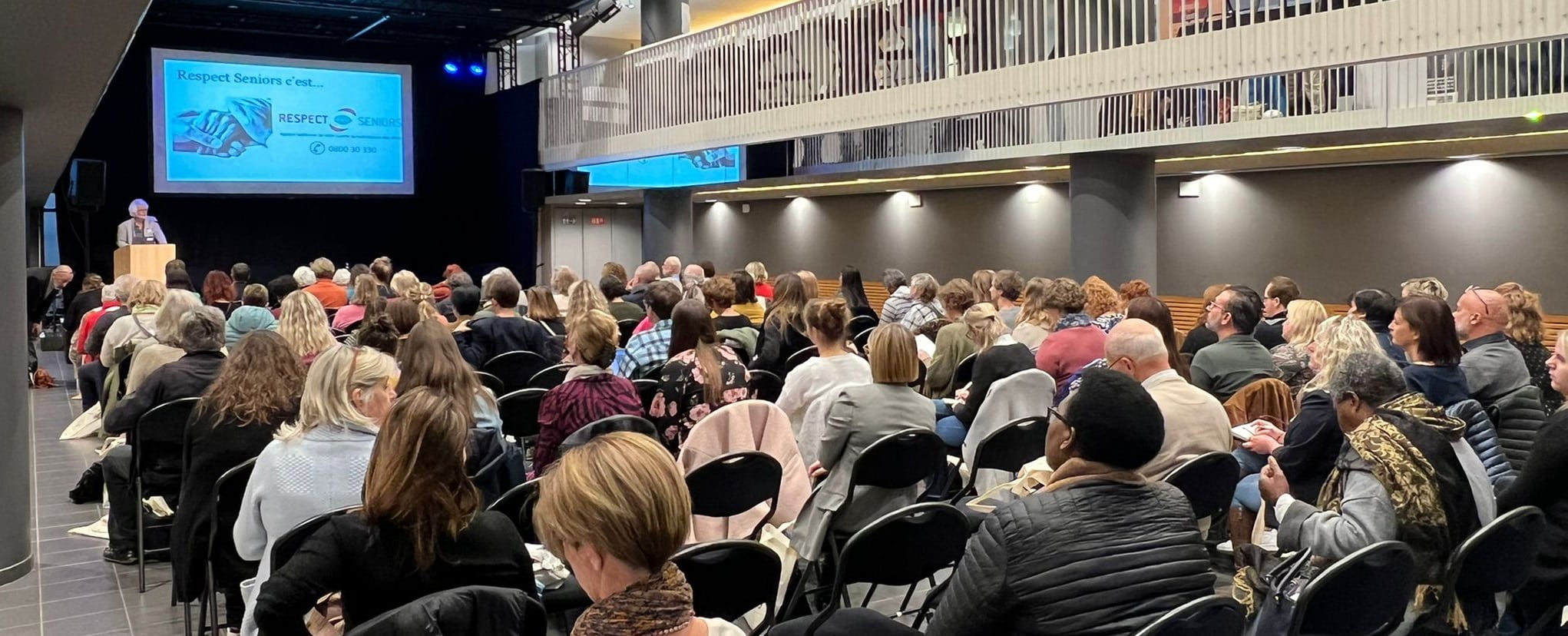Ageism is a term and a phenomenon that has gained momentum in recent years. The pandemic in particular has amplified the trend. Respect Seniors, the Walloon Agency for the fight against and CAS, the Coordination of Senior Citizens’ Associations, addressed the issue at a symposium in Belgium ahead of the International Day of Older People.
It is said that the degree of civilisation of a society is measured by the way it treats its older population. Yet ageism is persisting and even increased during the COVID-19 crisis. This form of discrimination seems to be tolerated by all. Why has this phenomenon become so commonplace? And are there ways to act?
This is what AGE Belgian member Respect Senior, tried to investigate during their joint event L’âgisme se prop’âge, une autre pandémie? in Louvain-la-Neuve (Belgium) on 29 September 2022, in which our colleague, Estelle Huchet, also participated as a speaker. Though a series of interventions and workshops we explored ageism and the representations of older people in society, and the link between ageism and abuse.
‘The number of older people is increasing over time and we realise that more and more people are in situations where they feel ageism, which is either voluntary or involuntary’, stated Respect Seniors’ Director, Dominique Langhendries. ‘And this has psychological repercussions: you feel infantilized and isolated.’
Ageism can very quickly become abuse, which can take several forms (psychological or physical) and reach various degrees. It is not only present in institutions but also at home. It is therefore essential to start identifying solutions to combat it.
For the researcher Stéphane Adam, one of the key-note speakers, we need to communicate around the issue of ageing in a more nuanced way. Instead of focusing on the cost of we should talk about the benefits that older people bring to society. For example, in the area of people over 55 generate 2.3 billion euros in benefits each year in Belgium, he pointed out.
CAS President, Anne-Marie Balthasart, mentioned several avenues to be explored, such as the training and support of people who look after older people at home and the reflection of everyone on the inevitability of old age. Using the notion of autonomy to assess progress instead of measuring the level of dependency would also help challenge agism and promote a more positive image of ageing.
These are all solutions that require real education, training and support, especially from policy-makers.
You can watch a report of the event in French here
* Photo from Respect Seniors







